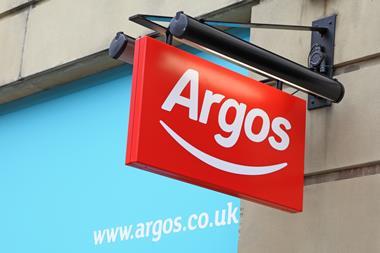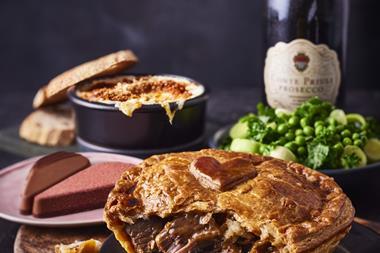Tesco has revealed plans to double the size of its burgeoning Express empire within 10 years.
Lucy Neville-Rolfe, company secretary, made the admission as she defended Tesco’s dominant market position at the final hearing of the All Party Parliamentary Small Shops Group, which is gathering evidence on the impact of the major grocery multiples on the high street by 2015.
Neville-Rolfe’s appearance followed the OFT’s shock announcement that it would look again at its decision not to refer the grocery market to the Competition Commission.
She said Tesco had “grown and flourished”, “helped bring down prices” and brought “great quality and range to the market”. She added: “We want to continue to grow convenience but at what rate depends on the market. In 10 years’ time, if we had another 600 that would certainly be sustainable.”
Expanding its Express estate by that number would take Tesco’s c-store tally to around the 2,000 mark by 2015.
Tesco opened its 600th Express store last month. It also has more than 500 One Stop stores and has a continuing commitment to the fascia.
At this week’s hearing, chairman Jim Dowd MP, referring to evidence submitted at an earlier hearing, said that a predatory voucher scheme aimed at stealing trade from smaller rival Proudfoot Group had been “scandalous”.
Neville-Rolfe repeated Tesco’s well-rehearsed line that the promotion had been a “one off”, the same argument that had seen the OFT clear it of “abusive trading”. However, The Grocer in April revealed how Tesco had reignited the controversial scheme elsewhere.
Turning to charges that Tesco had flouted planning consent, Dowd pointed to the Stockport store that ended up 20% bigger than planned. Neville-Rolfe said that the company refitting the site had been overzealous.
Neville-Rolfe said that the buying for Tesco’s convenience and super stores was done centrally and that the question of whether the marketplace should be considered as a whole was up to the regulator. Meanwhile, campaigners were queuing up to slam a report commissioned by Tesco from Southampton University, which concluded that the arrival of Express had “benefits for other traders” by changing shoppers’ habits and driving extra footfall.
David Rae, ACS chief executive, said: “There may be a short-term gain for some retailers but the long-term situation is very different for c-stores. Rival stores don’t immediately go out of business but they slowly have to change the way they trade in order to survive and just break even.”
Forum of Private Business spokesman Ben Pinnington added: “This report is flawed if it has been paid for by Tesco. We also take umbrage with the assertion that Express stores are rejuvenating the high street.”
>>p28 Analysis
Fiona McLelland & Simon Mowbray
Lucy Neville-Rolfe, company secretary, made the admission as she defended Tesco’s dominant market position at the final hearing of the All Party Parliamentary Small Shops Group, which is gathering evidence on the impact of the major grocery multiples on the high street by 2015.
Neville-Rolfe’s appearance followed the OFT’s shock announcement that it would look again at its decision not to refer the grocery market to the Competition Commission.
She said Tesco had “grown and flourished”, “helped bring down prices” and brought “great quality and range to the market”. She added: “We want to continue to grow convenience but at what rate depends on the market. In 10 years’ time, if we had another 600 that would certainly be sustainable.”
Expanding its Express estate by that number would take Tesco’s c-store tally to around the 2,000 mark by 2015.
Tesco opened its 600th Express store last month. It also has more than 500 One Stop stores and has a continuing commitment to the fascia.
At this week’s hearing, chairman Jim Dowd MP, referring to evidence submitted at an earlier hearing, said that a predatory voucher scheme aimed at stealing trade from smaller rival Proudfoot Group had been “scandalous”.
Neville-Rolfe repeated Tesco’s well-rehearsed line that the promotion had been a “one off”, the same argument that had seen the OFT clear it of “abusive trading”. However, The Grocer in April revealed how Tesco had reignited the controversial scheme elsewhere.
Turning to charges that Tesco had flouted planning consent, Dowd pointed to the Stockport store that ended up 20% bigger than planned. Neville-Rolfe said that the company refitting the site had been overzealous.
Neville-Rolfe said that the buying for Tesco’s convenience and super stores was done centrally and that the question of whether the marketplace should be considered as a whole was up to the regulator. Meanwhile, campaigners were queuing up to slam a report commissioned by Tesco from Southampton University, which concluded that the arrival of Express had “benefits for other traders” by changing shoppers’ habits and driving extra footfall.
David Rae, ACS chief executive, said: “There may be a short-term gain for some retailers but the long-term situation is very different for c-stores. Rival stores don’t immediately go out of business but they slowly have to change the way they trade in order to survive and just break even.”
Forum of Private Business spokesman Ben Pinnington added: “This report is flawed if it has been paid for by Tesco. We also take umbrage with the assertion that Express stores are rejuvenating the high street.”
>>p28 Analysis
Fiona McLelland & Simon Mowbray

















No comments yet